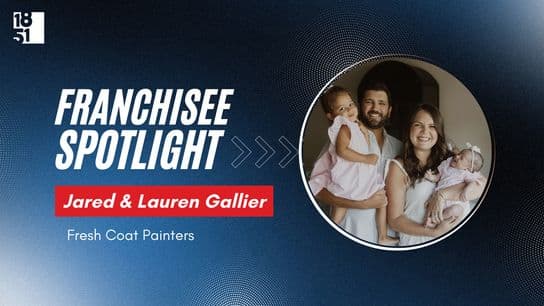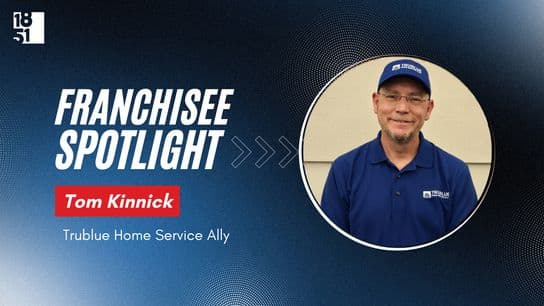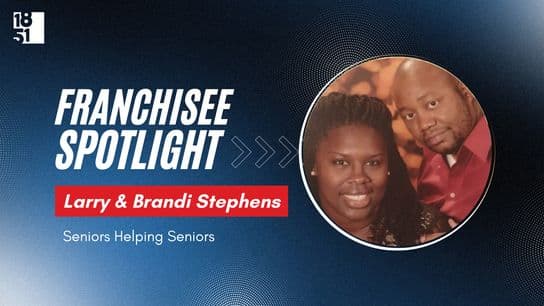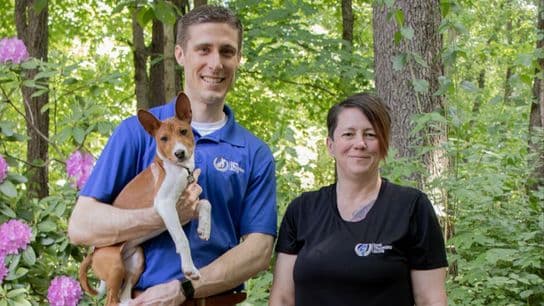Non-Profit El Hogar del Niño Hopes for Education Expansion
Whether an entrepreneur is operating a small business or working in the non-profit world, having a business plan that defines short and long-term goals is a necessary step to staying on track. While this may seem obvious, situations can shift and diversifying one’s strategy through changes is paramo.....
 [/caption]
According to Nielsen.com, the Latino community has not only maintained its population in the major of New York, Los Angeles, Chicago and Miami, but is expanding into new markets such as Charlotte, N.C., where the Latino population is growing faster than any other region of the country. With Latino communities growing at a strong rate, El Hogar serves as a primary example of a nonprofit with an expansion mindset, urging growth into new urban territories, Perez said. Their current development plans include opening a second location in Chicago.
Perez mentions the current federal poverty level for a family of four is $23,550 per year and El Hogar’s clients generally fall between that and $40,000 for an entire family.
“I know that our need and demand for service expands beyond Cook County,” Perez said. “At the end of the day, the business we are in is children’s futures. So right now, we’re addressing that in Little Village and Pilsen. At some point in the future, it will be broader.”
The brand, which has a board of directors meeting bi-monthly and a finance board meeting monthly, helps oversee the organization, planning and execution of new strategies as they look to grow. Heriberto Soto, founder of the blog Latino Potential and board Treasurer of the Finance Committee, has been with El Hogar for three years and joined in the middle of the financial crisis. He has helped strategize the diversification of grants and revenue streams, which has assisted with marketing efforts in new Latino communities of consideration.
Soto says the organization has different marketing strategies. They currently have different approaches in place for children, families and even B2B. In addition, they conduct online marketing initiatives, attend community functions and conferences, and do one-on-one outreach with potential funders. Soto says in-person meetings are very important and effective for the Latino community compared to other tactics, so they make sure they plan those meetings well and remain culturally sensitive.
“Just like any business, it’s best to have a diverse set of revenue streams,” Perez said. “As we’ve seen in this recent economy, sequestration has an impact and had a five percent cut to [government-funded educational program] Head Start at this center. It’s not the end of the world, but what’s more concerning is what it says about the future.”
This very notion of uncertainty is exactly why diversification, whether in the nonprofit sector or not, is vital. Perez directs his staff, comprised of about 100 individuals who can assist up to 360 children, to maintain a bottom line approach to the business, but always in an effort to help the child. They support an age range from newborn to 12, which gives many families the ability to earn a living and have the peace of mind knowing their kid is safe.
Even with the predominantly Latino population, the demographics in Pilsen and Little Village are changing. Many students from the University of Illinois -- Chicago and a new wave of young professionals are moving into the area. Perez says their current clientele looks younger and more diverse than just the Latino population, and they are at the precipice of adapting to this.
Soto notes it’s beneficial to re-strategize the organization because it allows everyone to take a step back and realize that working together helps achieve their goals. Because of this tactic, El Hogar is now in a much stronger position not only financially, but organizationally as well.
“Small business leaders are strong and have to make big decisions,” Soto said. “So for them to have the vulnerability to step back and say ‘I can use help’ is huge, but I think a lot of small business owners are reluctant to do that because it will create a negative view of the situation. While I understand and sympathize, that mentality won’t get you to where you need to go to get over the hump.”
The company-wide collaboration Soto benefits from is a way to help sustain the long-term growth of any brand, whether it’s a small business or nonprofit. Although any business is contingent on the marketplace, Perez stresses that being prepared to adjust plans and be mindful of the target audience will help keep any organization focused and successful.
[/caption]
According to Nielsen.com, the Latino community has not only maintained its population in the major of New York, Los Angeles, Chicago and Miami, but is expanding into new markets such as Charlotte, N.C., where the Latino population is growing faster than any other region of the country. With Latino communities growing at a strong rate, El Hogar serves as a primary example of a nonprofit with an expansion mindset, urging growth into new urban territories, Perez said. Their current development plans include opening a second location in Chicago.
Perez mentions the current federal poverty level for a family of four is $23,550 per year and El Hogar’s clients generally fall between that and $40,000 for an entire family.
“I know that our need and demand for service expands beyond Cook County,” Perez said. “At the end of the day, the business we are in is children’s futures. So right now, we’re addressing that in Little Village and Pilsen. At some point in the future, it will be broader.”
The brand, which has a board of directors meeting bi-monthly and a finance board meeting monthly, helps oversee the organization, planning and execution of new strategies as they look to grow. Heriberto Soto, founder of the blog Latino Potential and board Treasurer of the Finance Committee, has been with El Hogar for three years and joined in the middle of the financial crisis. He has helped strategize the diversification of grants and revenue streams, which has assisted with marketing efforts in new Latino communities of consideration.
Soto says the organization has different marketing strategies. They currently have different approaches in place for children, families and even B2B. In addition, they conduct online marketing initiatives, attend community functions and conferences, and do one-on-one outreach with potential funders. Soto says in-person meetings are very important and effective for the Latino community compared to other tactics, so they make sure they plan those meetings well and remain culturally sensitive.
“Just like any business, it’s best to have a diverse set of revenue streams,” Perez said. “As we’ve seen in this recent economy, sequestration has an impact and had a five percent cut to [government-funded educational program] Head Start at this center. It’s not the end of the world, but what’s more concerning is what it says about the future.”
This very notion of uncertainty is exactly why diversification, whether in the nonprofit sector or not, is vital. Perez directs his staff, comprised of about 100 individuals who can assist up to 360 children, to maintain a bottom line approach to the business, but always in an effort to help the child. They support an age range from newborn to 12, which gives many families the ability to earn a living and have the peace of mind knowing their kid is safe.
Even with the predominantly Latino population, the demographics in Pilsen and Little Village are changing. Many students from the University of Illinois -- Chicago and a new wave of young professionals are moving into the area. Perez says their current clientele looks younger and more diverse than just the Latino population, and they are at the precipice of adapting to this.
Soto notes it’s beneficial to re-strategize the organization because it allows everyone to take a step back and realize that working together helps achieve their goals. Because of this tactic, El Hogar is now in a much stronger position not only financially, but organizationally as well.
“Small business leaders are strong and have to make big decisions,” Soto said. “So for them to have the vulnerability to step back and say ‘I can use help’ is huge, but I think a lot of small business owners are reluctant to do that because it will create a negative view of the situation. While I understand and sympathize, that mentality won’t get you to where you need to go to get over the hump.”
The company-wide collaboration Soto benefits from is a way to help sustain the long-term growth of any brand, whether it’s a small business or nonprofit. Although any business is contingent on the marketplace, Perez stresses that being prepared to adjust plans and be mindful of the target audience will help keep any organization focused and successful.MORE STORIES LIKE THIS
Young Parents Chart a Colorful Course for the Future with Fresh Coat Painters Franchise
Utah Veteran Franchisee Wants to ‘Help People and Pay It Forward’ Through TruBlue Home Service Ally
Former Firehouse Subs Franchisee Transitions to Business Ownership With Fresh Coat Painters
From Social Work and Telecommunications to Franchising with Seniors Helping Seniors













